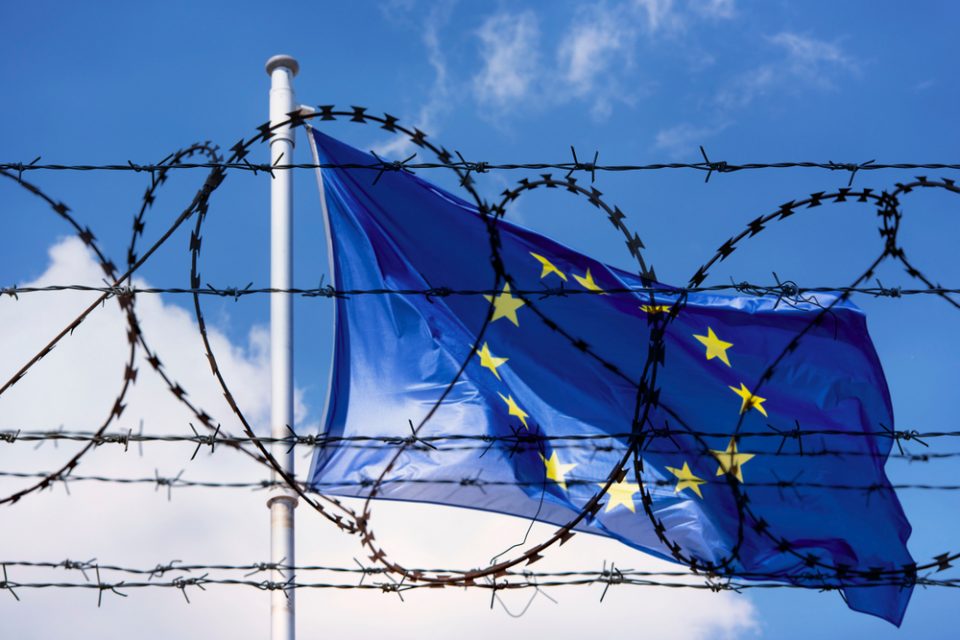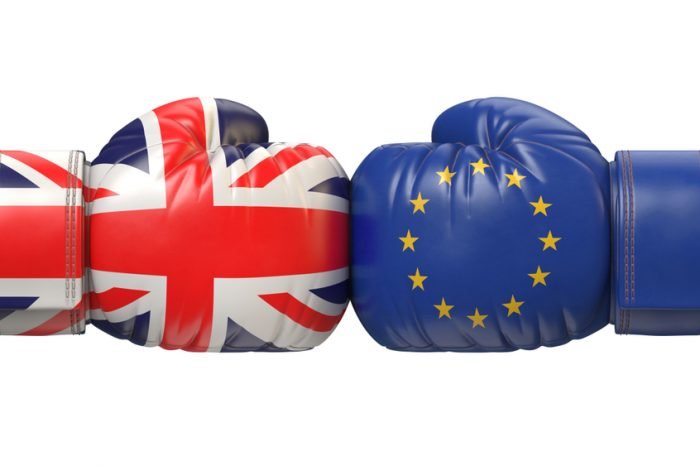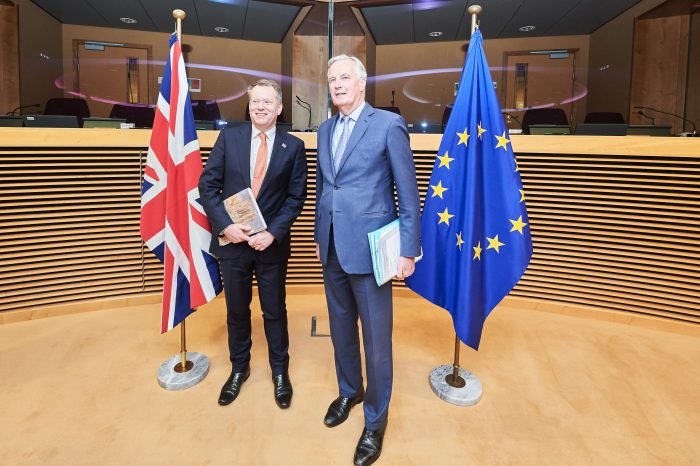Worst horrors of the draft Withdrawal Agreement

CIB committee member and director of the think tank The Red Cell Dr Lee Rotherham explores some of the worst horrors of the draft Withdrawal Agreement. This is an abridged version of an in-depth analysis that was originally published by the Telegraph on 17 November 2018.
The single greatest problem with May’s transition treaty is that it doesn’t guarantee the transit. It leaves us with the prospect of greater limbo than ever.
NO EXIT
The risk of us remaining in transition purgatory forever is because, ironically, the draft settlement does not contain a neat equivalent to Article 50, the EU’s escape clause. When Article 50 was being drafted, Eurosceptics challenged whether two years was too long and risked seeing a country’s decision to leave overturned by a determined Establishment rear guard. That was prophetic then, and prescient now.
Instead of a secure time lock, this transition deal has Article 132 – a name that will forever live in treaty infamy. On the assumption that getting an end deal will be a tad difficult, perhaps because at least one of the two parties involved doesn’t really want it, it allows for a mutually-agreed one-off extension of the transition period. This, critically, will extend arrangements until the specified date of “31 December 20XX”.
The negotiators might at least have deployed a little unbridled optimism and suggested that the UK’s regulatory servitude and imprisonment in a second-rate customs union might end sometime before 2099. They could at least have assured us that we’d be out within a decade and written 202X.
In other words, Article 132’s key significance lies in making a temporary deal potentially a permanent one.
There are, unfortunately, a lot of problem areas in the text and any audit can only trowel the surface. So let’s briefly focus on some of the ones that haven’t hit the headlines.
NO SAY
Article 128 covers the rights of the UK Parliament during transition, or more properly describes what will be stripped away. Currently, Westminster’s part in the EU system is not much more than being on the Christmas card list. Now, MPs even get removed from the consultation process, and are left with marginal engagement at the bottom of the food chain as legislative plankton.
The Remain campaign complained that the ‘Norway option’ was a sort of Fax Democracy, notwithstanding the limited safeguards contained in it. This new settlement now generates its Platonic ideal form.
NO CONTROL
EU paramountcy is extended to the court system. Under Article 162 the Commission has the right to proactively intervene and send legal opinions to UK judges to better guide them, and indeed the option of turning up in person. Article 168 keeps any disputes between the UK and EU executives in-house and inside the EU systems, while Article 174 makes arbitration by the EU judges binding.
Then there is the Common Fisheries Policy. It’s a bad enough pointer than the skeletal draft objective treaty state involves undefined “future shared stocks” and the prospect of joint management and shared stocks within UK waters. Meanwhile during transition, the CFP continues. Worst, it seems quota will be set by the EU27 without the UK in the room. DEFRA can supply comments: the most that can be said is that the deal does not rule out expletives.
Then there are the ranging environmental protection clauses. Here, EU negotiators have packed a policy suitcase to its seams. It packs in potentially burdensome legislation across everything from emissions to public participation via global warming. The Commission might at least have had the decency to admit that its motivation was to make sure the UK doesn’t become more competitive.
Given the track record of the Home Office (and indeed of a past Home Secretary now in higher office), it should come as no real surprise that the UK will also remain locked into a range of texts agreed by that department, including the European Arrest Warrant, that have vexed Conservative backbenchers over many a year.
DEFENCE INTEGRATION
Considerable uncertainty litters the deal with respect to Defence. The EU has now picked up the pace in the race for a Common European Defence, in which it sees the US as an emerging competitor. This policy is being pursued in several parallel strands. The UK has partially ducked out of some of them, but this draft leaves the UK at considerable risk to others, especially over some of the institutional arrangements that have yet to be finalised as one of the end ‘pillars’. An immediate risk is the push to integrate and slash national defence industries, since these would still come under the trade aspects of this deal. Moreover, policy here is centred on the work of the European Defence Agency that the UK will stay closely engaged with. More MPs need to read the papers from campaign group Veterans for Britain disentangling this complex spaghetti.
THE MONEY
Then there’s the money aspects of the deal. For such a weighty issue, the £39 billion – or as we should now style it, the “single financial settlement” – is rather mute. Given the vast scale of EU waste and overspending, that nevertheless continues to get paid year after year, perhaps it is too much the negotiators’ guilty secret. But someone might at least have thought about asking for a tenth of the assets, rather than just signing up to a share of the liabilities.
These liabilities obviously include the wildly generous pensions destined for Lord Mandelson and his fellow peers. Pensions has long been a thorny issue. EU auditor Marta Andreasen discovered epic levels of unfunded off-the-books liabilities, while MEPs had to be shamed into freezing admissions to their half-funded voluntary second pensions scheme. The UK should pay up for its staffers; however, there are half as many of them employed as there should be by share of EU population, and the figure on some key departments like fisheries has been under two percent. So in effect, the UK taxpayer under these terms looks lumbered with pensions for staffers from EU27 countries too.
Taken as a whole, it’s a dismal deal. The irony of it all is that the EU itself has passed consumer laws, precisely to prevent dreadful time share schemes like this one.
Dr Lee Rotherham is Director of think tank The Red Cell. He was Director of Special Projects at Vote Leave.







